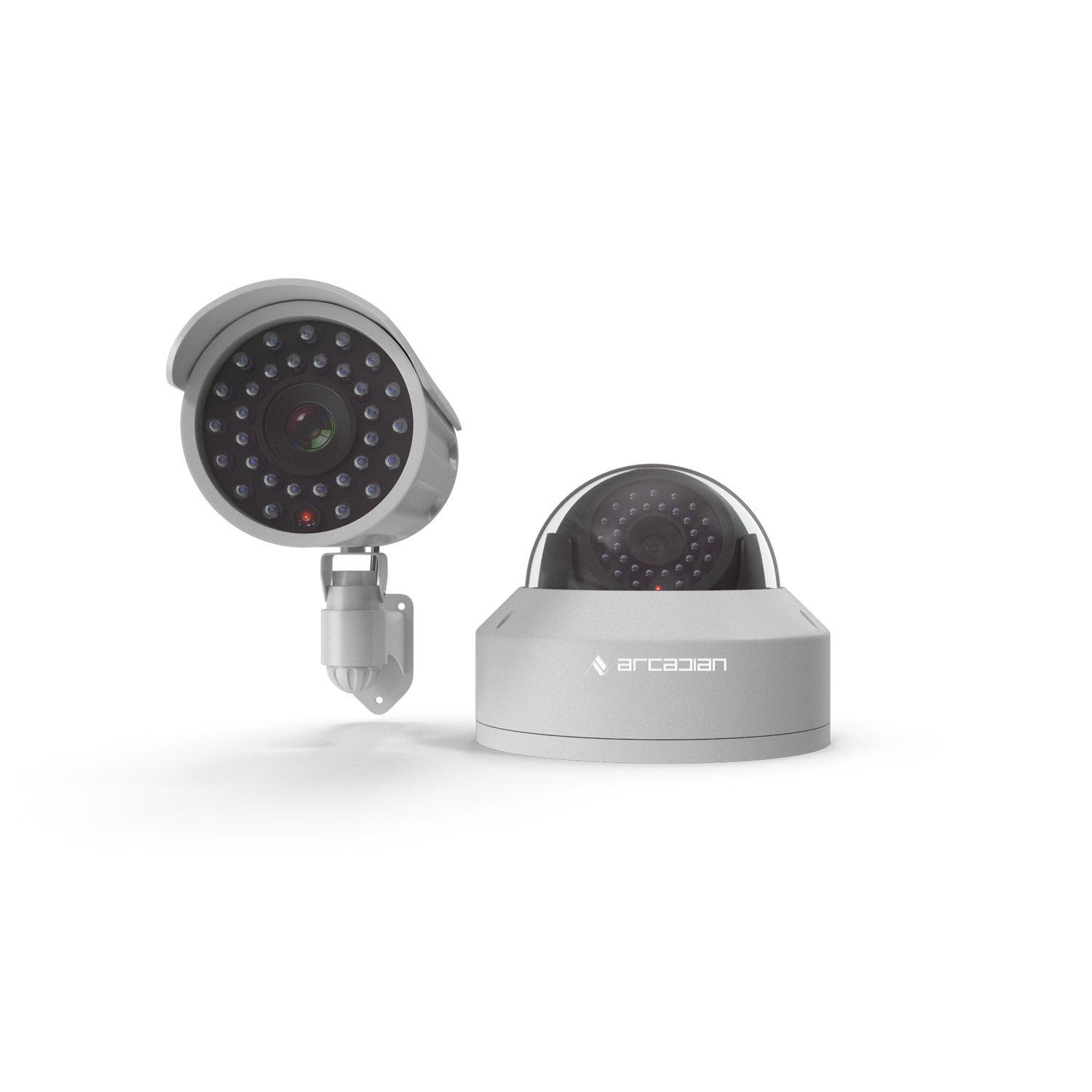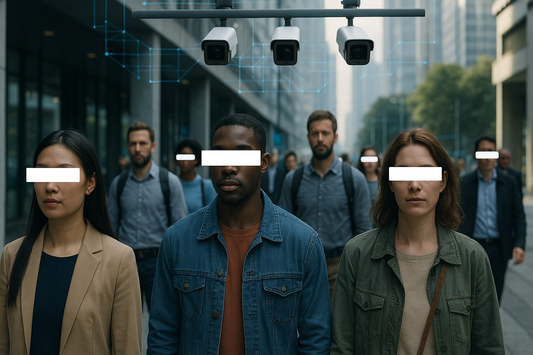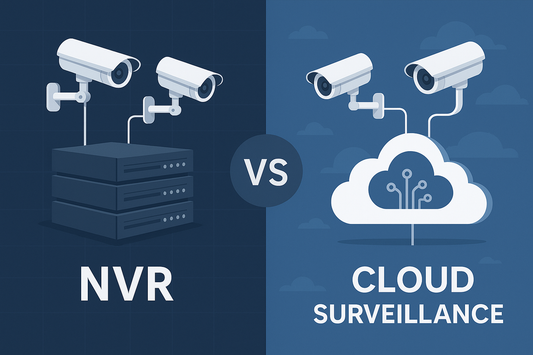How Cloud Surveillance Can Improve Security in Healthcare Clinics
Healthcare clinics face a unique set of challenges when it comes to security, from protecting sensitive patient information to ensuring the safety of both staff and patients. Traditional security systems, while essential, often fall short in meeting the specific needs of medical facilities, which require privacy-conscious, reliable, and scalable solutions....

Healthcare clinics face a unique set of challenges when it comes to security, from protecting sensitive patient information to ensuring the safety of both staff and patients. Traditional security systems, while essential, often fall short in meeting the specific needs of medical facilities, which require privacy-conscious, reliable, and scalable solutions. Cloud-based video surveillance offers a modern alternative, enabling clinics to manage security remotely, ensure compliance, and respond to incidents in real-time.
In this blog, we’ll discuss the ways in which cloud surveillance is enhancing security in healthcare clinics and creating a safer, more reliable environment.
1. Protecting Patient Data and Privacy with Secure Storage
Data security is paramount in healthcare, where clinics must comply with strict privacy regulations, such as HIPAA in the United States, to protect patient information. Cloud surveillance provides encrypted storage and secure access controls, ensuring that only authorized personnel can view footage, which is stored safely off-site.
For example, Mayo Clinic could implement cloud surveillance to monitor common areas while securing video footage with end-to-end encryption. This setup ensures that patient privacy is protected, reducing the risk of unauthorized access and demonstrating compliance with privacy standards.
2. Real-Time Monitoring for Immediate Incident Response
Healthcare clinics are high-traffic environments where disturbances can occur unexpectedly. Cloud surveillance systems provide real-time monitoring and instant alerts, enabling security teams to respond quickly to incidents, from unauthorized access to patient conflicts or medical emergencies.
Imagine a clinic within Mount Sinai’s network using cloud-based surveillance to oversee waiting rooms and hallways. If a patient appears distressed or if a security breach is detected, the system sends an alert to staff, who can then respond promptly to ensure patient safety and minimize disruptions.
3. Enhanced Security in Restricted Areas
Clinics often have restricted areas for storing medications, sensitive patient records, or expensive medical equipment. Cloud-based surveillance provides constant monitoring of these areas, alerting security personnel to any unauthorized access attempts in real-time, thus helping prevent theft and ensure patient confidentiality.
Consider Cleveland Clinic utilizing cloud surveillance to monitor restricted storage rooms. If someone tries to enter without authorization, the system can alert security immediately, ensuring that only authorized personnel can access sensitive areas, thereby safeguarding both patient records and valuable medical supplies.
4. Simplified Compliance with Regulatory Requirements
Healthcare facilities are required to comply with various regulations, and cloud surveillance simplifies compliance by securely storing video footage and providing controlled access logs. Cloud systems help clinics maintain audit trails and meet regulatory requirements more easily.
For instance, Johns Hopkins Medicine might rely on cloud-based surveillance to document public areas, enabling secure, time-stamped records that are easily retrievable for regulatory audits. This organized approach helps clinics meet compliance requirements while ensuring patient and staff privacy.
5. Scalable Security for Expanding Clinics
As clinics grow or open additional locations, security needs increase. Cloud surveillance offers scalability, allowing clinics to expand their surveillance coverage easily without the need for costly hardware upgrades. This makes it an ideal solution for clinics looking to manage security across multiple sites.
A network like Planned Parenthood could utilize cloud surveillance to monitor multiple facilities from a centralized platform. This flexibility ensures consistent security standards across all locations, simplifying management as the organization grows.
6. Remote Access for Flexible Oversight
With cloud-based systems, clinic administrators and security teams can access live feeds remotely, providing greater flexibility and oversight. This capability is particularly useful for clinics with limited on-site staff or those spread across different locations, allowing security teams to monitor activity from anywhere.
A healthcare provider like CVS MinuteClinic might use cloud surveillance for remote monitoring, enabling their security team to oversee all clinics across the country from a single control room. This setup allows them to respond quickly to incidents, regardless of location.
7. Improved Patient and Staff Safety with Real-Time Analytics
AI-powered cloud surveillance provides behavior analytics, identifying patterns such as loitering, suspicious movements, or unauthorized access attempts. This functionality enables clinics to take a proactive approach to security, ensuring a safe environment for both patients and staff.
Imagine One Medical implementing AI-driven cloud surveillance to monitor its clinics. The system could detect unusual behavior, such as unauthorized entry into restricted areas, and notify security staff before issues escalate, ensuring that both patient and staff safety remain priorities.
8. Lower Operating Costs with Reduced On-Site Infrastructure
Traditional security systems require extensive hardware and on-premise storage, leading to high installation and maintenance costs. Cloud surveillance eliminates much of this infrastructure, providing a cost-effective solution that reduces the need for on-site servers and physical storage.
For example, Kaiser Permanente could use cloud-based monitoring across its facilities, allowing it to save on physical infrastructure costs. By centralizing storage and processing in the cloud, the healthcare provider reduces both upfront expenses and ongoing maintenance needs.
9. Supporting Contactless Monitoring for Health Safety
Amid growing health concerns, contactless security measures have become increasingly important. Cloud-based surveillance allows for remote monitoring and minimizes in-person security checks, reducing contact between patients and staff and helping prevent the spread of infections.
Consider HCA Healthcare leveraging cloud-based monitoring in their clinics to ensure secure, contactless oversight of public spaces. This setup enables a safer, more hygienic environment for both patients and staff, aligning with modern health protocols.
Dr. Thompson’s Story: Transforming Security at a Healthcare Clinic with Cloud Surveillance
Dr. Thompson, a manager at a busy clinic, faced challenges in maintaining effective security while balancing patient confidentiality and regulatory compliance. After adopting Arcadian.ai’s cloud surveillance system, Dr. Thompson noticed a significant improvement in security and operational efficiency.
One evening, the system flagged an unauthorized attempt to enter a restricted medication storage room. Thanks to the real-time alert, Dr. Thompson’s team intervened immediately, preventing a potential security breach. Additionally, the remote access feature allowed him to oversee security operations from his office, reducing on-site staff costs. Arcadian.ai’s solution has helped Dr. Thompson’s clinic remain safe, compliant, and efficient, creating a secure environment that both patients and staff appreciate.
Looking to enhance security and compliance in your clinic? Discover how Arcadian.ai’s cloud-based surveillance solutions can protect patients, staff, and sensitive information while meeting healthcare regulations. Schedule a demo today.
SEO Keywords and Tags:
- Cloud surveillance for healthcare clinics
- HIPAA-compliant security for clinics
- AI-powered video monitoring for healthcare
- Patient confidentiality in healthcare security
- Arcadian.ai solutions for clinic security
- Remote access video surveillance for clinics
- Enhancing patient safety with cloud surveillance
- Cost-effective surveillance for healthcare
- Scalable security solutions for clinics
- Real-time monitoring for medical facilities

Security is like insurance—until you need it, you don’t think about it.
But when something goes wrong? Break-ins, theft, liability claims—suddenly, it’s all you think about.
ArcadianAI upgrades your security to the AI era—no new hardware, no sky-high costs, just smart protection that works.
→ Stop security incidents before they happen
→ Cut security costs without cutting corners
→ Run your business without the worry
Because the best security isn’t reactive—it’s proactive.






